Best Formula for Constipation: The Ultimate 2025 Guide
35 hours of research, 5 minutes of reading

You may be feeling very stressed because your child is constipated. One possible cause of constipation is your child's diet, especially if you have recently started feeding him formula.
Your baby may experience slower digestion and constipation due to the consistency of powdered formulas and inorganic ingredients in the formula. Usually, switching to an alternative baby formula can resolve this issue.
This article is a detailed guide for parents to help you choose the best formula for your constipated baby.
Bottle-fed newborns and constipation
It is very important for parents to find out if their child is constipated. Constipation is difficulty having a bowel movement, not the inability to have a bowel movement. This means that irregular bowel movements do not necessarily cause constipation. Instead, it is important to pay attention to the texture and consistency of your child's stool. For example, if your child's stool is hard, dry, and looks like tiny balls, he/she may be constipated.
For example, if your bottle-fed baby has irregular bowel movements but their stools are fairly soft and look normal, they may not be constipated. Also, it's perfectly normal for your baby to turn red when they poop. Your baby may be constipated if their stools are hard, dry, and look like tiny balls.
Are formula-fed babies prone to constipation?

It is true that formula-fed babies are more likely to suffer from constipation than breastfed babies. Breast milk acts as a natural laxative and is easily digested by babies. On the other hand, infant formula contains larger proteins that are not easily digested and can cause gastrointestinal problems, the most common of which is constipation.
This does not mean that all formula-fed babies are constipated, or that it is impossible for a breastfed baby to never be constipated. Every baby has a different digestive system. When you introduce solid foods to a breastfed or formula-fed baby, your baby will often experience symptoms of constipation.
Signs of constipation in your child
Constipation is a common digestive problem in newborns that can be difficult to resolve. Below are some signs of constipation:
- Hard, dry stool that may look like hard balls and stones.
- Abdominal bloating with gas.
- The child cries in pain during bowel movements.
- Blood in the stool.
- Bowel movements for less than 3 weeks.
- Lack of interest in food.
It is important to make an appointment with your doctor if your child has any of the above signs of constipation.
Common problems leading to constipation in formula-fed babies
Breastfed babies are less likely to suffer from constipation than formula-fed babies and those transitioning to solid foods. Below are some of the causes of constipation in formula-fed babies:
1. Thick formulas
One common cause of constipation in formula-fed babies is thicker formula. Formula is thicker than breast milk, which means it takes longer for your baby's digestive tract to process it. Using too much thick formula can lead to constipation and dehydration.
2. Rice-based formula
If you give your baby a rice-based formula, it can lead to constipation. Typically, acid reflux formulas use rice, which is much thicker and takes longer to digest in your baby's digestive tract. This can lead to gas and constipation.
3. Milk allergy
If your child has a milk protein allergy or lactose intolerance, the development of constipation will be inevitable.
Should I switch to infant formula to help my child with constipation?

If your baby's formula causes frequent constipation, then you should change to a better formula.
However, switching from one brand of formula to another too often can make things worse. Give your baby's digestive system a few weeks to adjust to the new formula. Also, be sure to consult your baby's pediatrician.
Why are European formulas better for your baby's health?
European formulas strictly follow the recommendations of the European Commission, which is similar to the US Food and Drug Administration (FDA). The only difference between the EU and the FDA is that the EU rules and regulations are stricter for the production of infant formulas.
Traditional American baby formulas are made with cheap, processed ingredients and empty calories that provide no nutritional benefit to infants. Many pediatricians refer to these American formulas as “baby milkshakes.”
Unlike cheap formulas, European baby formulas are organic, made using strict organic farming methods without the use of processed sugars, other than natural milk sugar. In addition, baby formulas made according to EU recommendations do not contain carrageenan, a thickener used in food products.
Carrageenan, which is used in infant formulas, can irritate a baby's digestive system and lead to many problems, including constipation. European infant formulas do not contain intestinal irritants such as carrageenan and are considered the best for relieving constipation and other digestive problems in infants.
The best formula for constipation?
If you don’t know which baby formula to choose to relieve constipation, you should choose HiPP baby formula. HiPP baby formulas are considered the best for constipation because they contain prebiotics and probiotics that take care of your baby’s digestive system. Here are some must-have ingredients to look out for when choosing a baby formula:
- Gastrointestinal support: The formula should provide gastrointestinal support, as the baby's digestive system is not yet mature enough to function optimally.
- Age Appropriate: Make sure the formula you choose is appropriate to your baby’s current age.
- A Base Your Baby Tolerates Well: Make sure you provide your baby with a base that your baby tolerates well. For example, rice bases are too thick for some babies, and some babies do not tolerate milk bases.
Below are the best-selling HiPP baby formulas for constipation:
1. HiPP Dutch Combiotic Formula Best Seller
✓ Contains Probiotics & Prebiotics
✓ No sugar, no corn syrup, no soy
✓ No starch
✓ HiPP's most popular formula
Check PriceHiPP Dutch Combiotic formula is one of the safest and healthiest formulas for your baby’s digestive system. The Dutch version is easy on your baby’s digestive system, nourishes the gut, and alleviates symptoms of chronic constipation.
-
HiPP Dutch Combiotic:
- Doesn’t contain harmful ingredients that cause constipation.
- Contains prebiotics and probiotics that increase infant gut health.
- Comes in three stages, and all have stool-loosening effects
HiPP Dutch doesn’t contain any of the following ingredients:
| Processed refined sugar | Nuts | Soy |
| Starch and maltodextrin | Wheat | Gluten |
2. HiPP Comfort
✓ Contains Probiotics & Prebiotics
✓ No sugar, no corn syrup, no soy
✓ Reduced lactose with hydrolyzed milk protein
✓ Easy to digest formula for sensitive babies
Check PriceHiPP Comfort provides superior nutrition to your constipated baby due to its unique formulation stool-loosening effect. The formula promotes healthy bowel movements and soothes an irritated gut.
-
HiPP Comfort not only helps babies with colic, constipation, and flatulence, it also contains healthy ingredients, including:
- Hydrolyzed Protein: Fewer gastrointestinal symptoms, less constipation.
- Prebiotics & Probiotics: Increased infant gut health.
- Natural Cultures of Lactic Acid Bacteria: Relaxed bowel movements, increased growth of gut flora.
- Evenly Distributed Fats: Fewer blockages, similar to breast milk
✓ Contains Probiotics & Prebiotics
✓ No sugar, no corn syrup, no soy
✓ Hydrolyzed milk proteins reduce allergic reactions
✓ Popular for constipated babies
Check PriceHiPP HA Germany is ideal for infants who have sensitivity to certain milk proteins. The formula is specially formulated with hydrolyzed proteins that reduce the allergic response and soothe constipation.
-
This is why HiPP HA Germany is perfect for your baby:
- Formulated with natural carbohydrates that supplement breast milk.
- Contains prebiotics and probiotics to strengthen your baby’s gut microbiome.
- Contains hydrolyzed proteins that are good for allergies and upset tummies.
- Free of synthetic ingredients.
- Contains no maltodextrin, starch, soy, or corn syrup.
✓ Contains Prebiotics, DHA, and ARA
✓ No sugar, no corn syrup, no soy
✓ Reduced lactose with hydrolyzed milk protein
✓ Popular for the dietary management of colic and constipation
Check PriceHiPP UK Comfort is a well-loved choice for babies with digestion concerns, offering gentle relief for colic, constipation, and other discomforts. Featuring less lactose and hydrolyzed protein, this formula combines natural prebiotics and fibers to support healthy gut function and encourage softer stools.
-
This is why HiPP UK Comfort is perfect for your baby:
- Specially formulated to provide gentle relief for infants with colic, constipation, or other digestive discomforts.
- With reduced lactose and hydrolyzed protein.
- 100% Non-GMO formula
- Made with a special combination of natural prebiotics and fibers, carefully chosen to support healthy gut function and promote softer stools.
✓ Has Prebiotics and Probiotics
✓ Hydrolyzed milk proteins reduce allergic reactions
✓ No sugar, no corn syrup, no soy
✓ Easy to digest formula for sensitive babies
Check PriceHiPP Dutch HA is HiPP's latest hydrolyzed formula and is an excellent choice for infants dealing with constipation, allergies, or sensitivity to cow's milk. It contains hydrolyzed milk proteins to minimize allergic reactions and offers complete nutrition with prebiotics and probiotics.
-
This is why HiPP Dutch HA is perfect for your baby:
- Popular for babies who are sensitive to cow's milk.
- Designed to provide comfort for babies who have constipation and/or allergies.
- Contains hydrolyzed milk proteins for reduced allergic reactions.
- A nutritionally complete formula with prebiotics & probiotics.
✓ No sugar, no corn syrup, no soy
✓ Reduced lactose
✓ Hydrolyzed milk proteins reduce allergic reactions
✓ Designed to help with colic and constipation
Check PriceAptamil Comfort is specially designed to provide relief for babies experiencing discomfort due to gas and colic. Formulated with gentle ingredients, this baby formula helps ease digestive discomfort and reduces the likelihood of excessive gas formation.
-
This is why Aptamil Comfort is perfect for your baby:
- Has reduced lactose and hydrolyzed milk protein to reduce allergic reactions.
- Designed to help manage symptoms of colic, constipation, and other digestive discomforts.
- Has added prebiotics, to support a healthy digestive system.
- Free of synthetic ingredients and preservatives.
- Enriched with essential nutrients, including proteins, carbohydrates, fats, vitamins, and minerals.
Baby Formula For Constipation
Cheap infant formulas interfere with your baby’s digestive system and cause constipation. Your baby needs the best formula that provides complete nourishment and optimal health. HiPP organic baby formulas that relieve your baby’s constipation, promote healthy stools and promote the gut flora. You can complement baby formula with prune, apple, or pear juice to treat constipation in infants.
If you’re considering buying the best formula for your constipated baby, Organic Life Start is the best platform that sells European organic baby formulas that value your baby’s health.
In addition to choosing the right formula for your baby, it's important to understand how to treat constipation and address any associated issues, such as constipation and nausea. When your baby is constipated, in addition to gentle remedies like adding prune, apple, or pear juice, it's crucial to keep your baby well-hydrated, as dehydration can worsen constipation and even lead to nausea. By prioritizing your baby's digestive health and being informed about effective remedies, you can ensure your little one has a comfortable and happy start to life. Don't hesitate to ask your pediatrician for personalized advice on managing constipation and your baby's overall well-being.
3 best formulas for constipation and gas
Organic Life Start is committed to providing accurate, reliable, and trustworthy information to parents and caregivers. We carefully choose credible sources and follow a meticulous fact-checking process to uphold the highest standards in infant nutrition and parenting advice. To learn more about our dedication to accuracy, please explore our editorial guidelines.
Link To Sources
- https://www.healthychildren.org/English/health-issues/conditions/abdominal/Pages/constipation.aspx
- https://www.healthychildren.org/English/ages-stages/baby/diapers-clothing/Pages/Infant-Constipation.aspx
- https://www.mayoclinic.org/healthy-lifestyle/infant-and-toddler-health/expert-answers/infant-constipation/faq-20058519
- https://www.chop.edu/news/coping-constipation
- https://www.aafp.org/pubs/afp/issues/2022/0500/p469.html


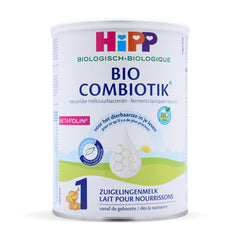
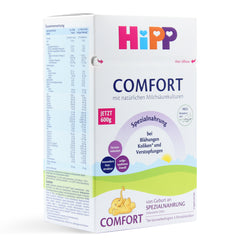
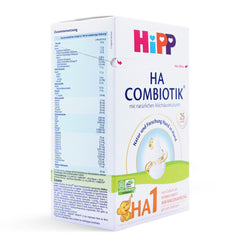
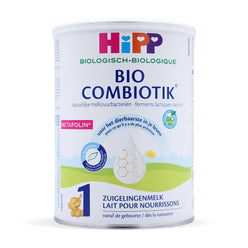


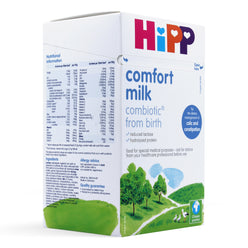
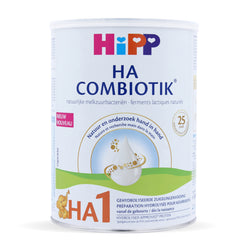
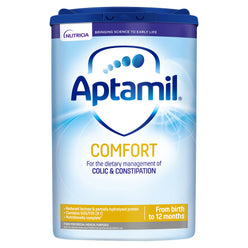






Carolyn -
We struggled with constipation for weeks before realizing our baby’s formula might be part of the issue. Switching to a formula with prebiotics made a noticeable difference in just a few days. We also started giving her a little extra water between feeds on our pediatrician’s advice, which helped soften her stools. HiPP Comfort and goat milk formulas were both easier on her digestion compared to the regular cow milk ones we had been using. It’s really about finding the right balance of ingredients that support gut health without being too harsh. Tracking diaper patterns helped us figure out what worked best, and it was such a relief once things finally became regular.
Bryan Corley -
We had to try a few different formulas before finding one that actually helped with our baby’s constipation. It’s so true that what works for one baby might not work for another, so having options laid out like this is a big help.
Princess L -
We switched from Enfamil to HiPP Comfort because our baby was going days without pooping and clearly uncomfortable. Within a week, things got so much better. The prebiotics in HiPP seem to really help soften stools and support regularity, and it’s been much gentler overall. I haven’t tried Holle goat yet, but I’ve heard from other moms that goat milk can be easier to digest due to the smaller fat and protein molecules. If your baby is already having trouble with constipation, a formula change could absolutely help, especially one made for sensitive digestion. Just be ready for a short adjustment period. We saw some gas at first but nothing concerning. It’s definitely worth trying a European option if you’re looking for something cleaner and more targeted for digestive comfort.